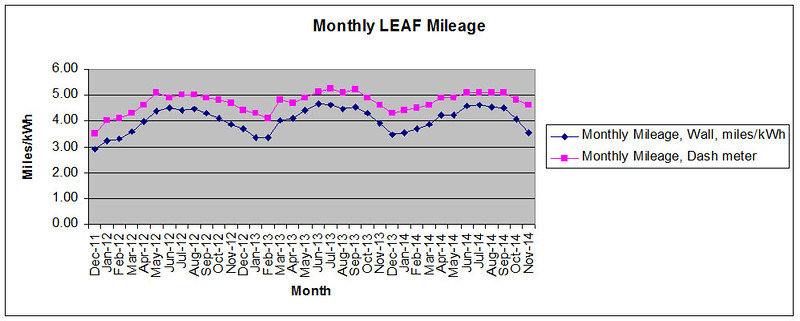According to the instrumentation on my 2011 Nissan Leaf I am averaging 4 miles per kWh. But it didn't seem right.
So I did a test.
I charged to 100%, drove 42 miles, then charged again to 100% with a
Kill-o-Watt meter in-line. The charging energy consumption was 16.2 kWh giving 2.6 m/kWh. (A friend who own a Tesla says he's getting 2.5 m/kWh).
(It's possible the instrumentation is based on 100% charging
efficiency but that might account for 15% based on lead acid technology
(14 volt charging, 12 volt discharge)).
Details: 25 degrees F, 54 min trip time, slightly hilly NH roads,
daylight, no heat, 11 miles range left. Battery test 82 miles, 1 bars (same as a year ago).
I plan to do again in warm weather.
So I did a test.
I charged to 100%, drove 42 miles, then charged again to 100% with a
Kill-o-Watt meter in-line. The charging energy consumption was 16.2 kWh giving 2.6 m/kWh. (A friend who own a Tesla says he's getting 2.5 m/kWh).
(It's possible the instrumentation is based on 100% charging
efficiency but that might account for 15% based on lead acid technology
(14 volt charging, 12 volt discharge)).
Details: 25 degrees F, 54 min trip time, slightly hilly NH roads,
daylight, no heat, 11 miles range left. Battery test 82 miles, 1 bars (same as a year ago).
I plan to do again in warm weather.

